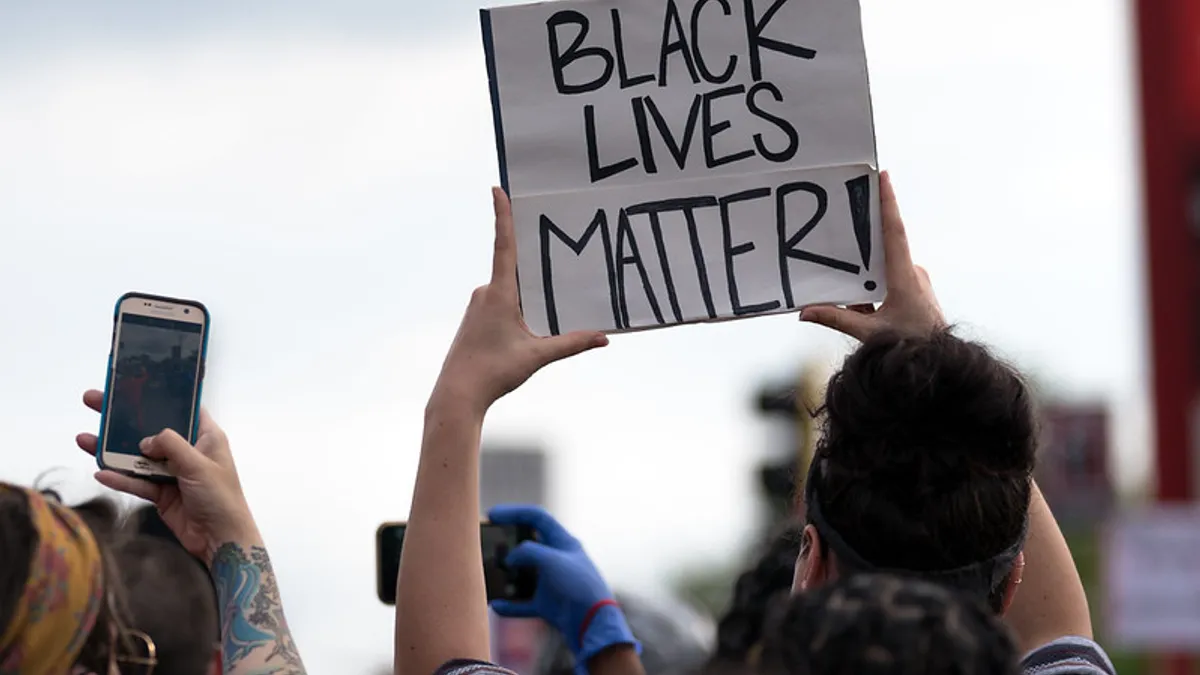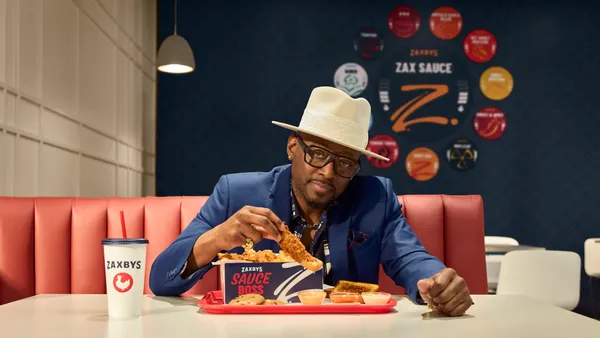Dive Brief:
- Most Americans say brands should respond to social issues related to the Black Lives Matter (BLM) movement. Almost three-quarters (71%) of U.S. adults said brands have a role in responding to the issues of racial injustice and police brutality, per survey results that researcher Opinium shared with Marketing Dive.
- The most important way to address BLM-related issues is to make a statement supporting peaceful protests, 19% of survey respondents said, compared with statements that support racial equality (18%), denounce looting (17%), support the police (13%) or express solidarity with the BLM movement (12%). Forty-one percent of Black Americans said they feel that brands don't understand their experience, compared with only 34% of the general population.
- Twenty percent of Americans said they would stop buying from a brand perceived to have behaved hypocritically on the issues of racial injustice and police brutality. Only 6% would stop buying from a brand that remains silent on the issues, the survey found.
Dive Insight:
In the wake of the murder of George Floyd while in police custody, the Black Lives Matter movement has gained a wider global following among protesters demanding an end to racism and police brutality. As Opinium's study suggests, brands have a significant role in addressing these issues, but those efforts must be sincere to have a significant effect on consumer opinions.
The survey suggests that the recent protests are affecting what consumers want to see in ad creative, which is important for marketers that want to strike the right tone when addressing social issues. Three out of five Americans want advertising to respond to the recent BLM protests, while the remainder prefer to see content that isn't related to these issues. Among people who want ads to address racial justice, most want ads to refer to the issue rather than make it the central focus. The coronavirus pandemic is a more significant issue, with 68% of consumers saying they want ads to refer to the health crisis, compared with 62% who said the same about racial justice.
Opinium's survey results come as a variety of brands have made stronger efforts to address BLM-related issues, including donations to nonprofit groups, pledging to support equality in the work place and participating in boycotts to denounce online hate speech. Among those brands, coffee chain Starbucks recently reversed a ban on wearing BLM apparel at work, and it's still too early to tell whether the company caused long-term damage to its brand. The company's experience provides lessons on how brands need to manage delicate social issues.
Other research highlights the precariousness of creating ad campaigns that are perceived as supportive rather than exploitative of the BLM movement. Recent ads by McDonald's and Procter & Gamble in support of the movement were found to be in what researcher Ace Metrix described as the "danger zone" of being more exploitative than empowering. As Opinium's survey found, the worst outcome is to be perceived by consumers as inauthentic, which may result in a loss of brand reputation.














